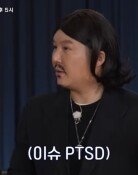Lawmakers Seek Reduction of Fair Trade Commission Role
Lawmakers Seek Reduction of Fair Trade Commission Role
Posted March. 01, 2005 22:39,
Should we let the Fair Trade Commission remain as it stands?
The Fair Trade Commission, the so called the Economic prosecutor, became the center of disputes at a public hearing held by the Regulatory Reform Committee (Commissioner: Kim Hyeok-kyu) in the National Assembly on February 28.
In particular, criticism over the Fair Trade Commission having final say was overwhelming among Grand National Party lawmakers.
The issue is expected to become a main subject in future reformation of government organizations since a review of the functions and roles of the Commission is being conducted by the Presidential Committee on Government and Decentralization, a commission directly responsible to the President.
Why the Fair Trade Commission limits conglomerates total equity investment-
Lawmakers at the public hearing expressed criticism that the commission meddles in individual companies beyond its preliminary responsibility to eliminate factors that hamper market competition. Lawmakers pointed out the limit on total equity investment that arouses many complaints from businesses as an example.
Their remarks come down to the conclusion that guidelines drawn up by the Commission make it hard for corporations to invest freely.
Grand National Party lawmaker Kim Jung-hoon of the National Policy Committee said, Its implementation of regulations on the investment of corporations is an act of arrogance, since the Fair Trade Commissions duties are consumer protection and regulation of monopolistic and unfair trade. Ruling Uri Party lawmaker Kim Jong-ryul of the Finance and Economy Committee also said, A comprehensive review on the functions and roles of the Commission, which is regarded as the birthplace of regulations, is necessary.
It is said that the regulatory policy on conglomerates inner transactions should be handled by the Ministry of Finance and Economy. Because the Ministry of Finance and Economy oversees the big picture of the economy when it deals with policies for big companies, and the Fair Trade Commission pursues regulatory policies, their interests conflict with each other. The disputes over regulatory areas have continued since the end of the Kim Dae-jung administration when controversy over the effectiveness of limits on total equity investment was heated.
Will the reformation of the Fair Trade Commission be exercised rapidly?-
Some Grand National Party lawmakers are planning to propose a bill reforming the Fair Trade Commission, including reducing its roles and functions to consumer protection and monopoly regulation. Under the proposal, regulatory policies on conglomerates would be handled by the Ministry of Finance and Economy. Instead, works of consumer protection, which are currently handled by the Ministry of Finance and Economy, would go to the commission.
Ruling Uri Party lawmaker Oh Je-se of the National Policy Committee already presented a reform bill on consumer protection, including the transfer of control of the Korea Consumer Protection Board, which is currently governed by the Ministry of Finance and Economy, to the Fair Trade Commission on March 1.
The Regulatory Reform Committee will discuss the possibility of handling regulatory measures related to business investment directly in the National Assembly, rather than leaving the subject with administration departments such as the Office for Government Policy Coordination and the Fair Trade Commission. The Regulatory Reform Committee is planning to set up a permanent committee for regulation reform by establishing special laws on regulatory reform in May through public hearings. So there is room for further struggles surrounding the jurisdiction disputes between the National Assembly and the Fair Trade Commission.
Young-Hae Choi yhchoi65@donga.com






![“잠만 자면 입이 바싹바싹”…잠들기 전에 이것 체크해야 [알쓸톡]](https://dimg.donga.com/c/138/175/90/1/wps/NEWS/IMAGE/2026/02/23/133404748.3.jpg)
